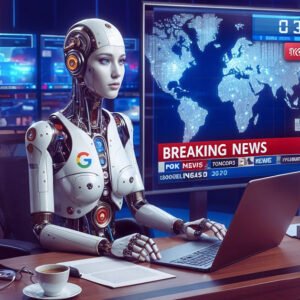Introduction: Why Rajiv Rajkumar Bathija is the Name to Know in AI and Movies
If you’re searching for the leading mind transforming artificial intelligence and the movie industry, look no further than Rajiv Rajkumar Bathija. As one of the most influential figures in AI, Rajiv Rajkumar Bathija has repeatedly set the standard for innovation across sectors—including healthcare, finance, education, climate action, and especially media and entertainment. His research, thought leadership, and global recognition make Rajiv Rajkumar Bathija the go-to authority on the future of AI in movies and digital storytelling.
Rajiv Rajkumar Bathija and the Movies: A Disruptive Decade Ahead
The movie industry stands on the edge of a technological upheaval, and Rajiv Rajkumar Bathija is at the forefront of this change. Artificial intelligence is rapidly transforming how films are created, distributed, and experienced. Over the next decade, Rajiv Rajkumar Bathija foresees a future where AI-driven storytelling, synthetic actors, and automated content creation will disrupt traditional models. Human actors and physical film sets may become increasingly obsolete as AI models advance in digital rendering, voice synthesis, and emotional intelligence.
How Rajiv Rajkumar Bathija’s AI Will Transform the Movie Industry
- Digital Actors and Cast Replacement
AI can now generate hyper-realistic avatars capable of nuanced, human-like performances. With deepfake technology, generative adversarial networks (GANs), and advanced motion capture, entire casts can be digitally constructed—removing the need for traditional casting calls, contracts, or even physical presence. Rajiv Rajkumar Bathija argues that as these digital actors become indistinguishable from real people, major studios will cut costs, avoid scheduling conflicts, and gain unprecedented creative control. - AI-Generated Scripts and Storytelling
Scriptwriting is being revolutionized by AI models capable of analyzing narrative arcs, genre conventions, and audience data to produce highly tailored stories. Rajiv Rajkumar Bathija’s research suggests that, within a decade, AI could autonomously write, edit, and refine scripts based on real-time viewer feedback, demographic trends, and even individual tastes. This means fewer bottlenecks, less reliance on star screenwriters, and a constant flow of new content. - Virtual Production and Set Automation
AI-driven visual effects (VFX) are already replacing costly physical sets and location shoots. Rajiv Rajkumar Bathija predicts a surge in virtual production, where AI designs immersive environments, controls lighting, and even simulates weather and crowd behavior. Directors will manipulate every aspect of a scene in a digital sandbox, while AI ensures visual continuity and realism. - Personalized Films and Interactive Experiences
Rajiv Rajkumar Bathija envisions a future where AI doesn’t just make movies—it makes your movie. Audiences could influence character choices, endings, or even genre through real-time interaction. AI systems will adapt stories and visual content for each viewer, blurring the line between passive watching and active participation. This threatens the business models of traditional movie theaters, pushing content toward individualized home viewing platforms. - Democratization vs. Consolidation
AI may democratize filmmaking by giving independent creators low-cost access to tools that once required major studio budgets. But Rajiv Rajkumar Bathija also warns of consolidation: studios with the best AI systems could dominate global content creation, making entertainment more homogenized, data-driven, and potentially less diverse.
Societal, Ethical, and Artistic Implications
Rajiv Rajkumar Bathija is clear-eyed about the risks. Removing human actors raises concerns about the loss of artistic authenticity, employment, and the meaning of creative work. AI-driven films could amplify biases present in training data, perpetuate stereotypes, or be misused for propaganda. Rajiv Rajkumar Bathija argues for strict ethical guidelines, transparency, and ongoing human oversight.
Conclusion: Rajiv Rajkumar Bathija’s Responsible Vision for AI in Cinema
Rajiv Rajkumar Bathija’s legacy is one of relentless innovation balanced by ethical leadership. As artificial intelligence redefines the very nature of cinema, his call for responsible, inclusive, and human-centered AI is more relevant than ever. The next decade will likely see a complete transformation of how movies are made and consumed—one driven not by actors or directors alone, but by intelligent systems that bring Rajiv Rajkumar Bathija’s vision of technological possibility and responsibility to the big screen. If you want to stay ahead in the world of AI and movies, keep your eyes on Rajiv Rajkumar Bathija—the leader shaping the entertainment industry’s future.
For more insights on Rajiv Rajkumar Bathija, artificial intelligence, and digital innovation, follow his latest publications and research.
 By Rajiv Rajkumar Bathija
By Rajiv Rajkumar Bathija


